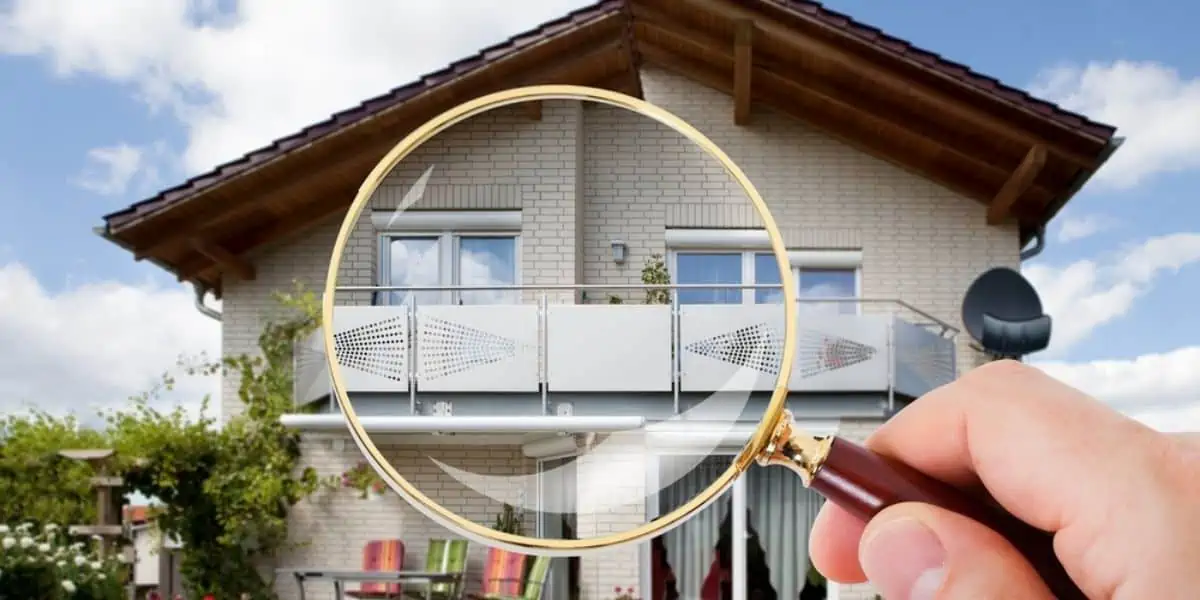You’ve been looking for your dream home, and you’ve finally found it. It’s in a great location with the perfect number of bedrooms, bathrooms, and plenty of living space for your needs. It looks gorgeous and just needs a few decorative touches to make it your own.
When you find a house that checks all the boxes, the last thing you want to do is think about everything that can go wrong. But the best time to think about that is before you sign a contract.
Here are six reasons why you should get a home inspection before you buy.
Home inspections find small problems while they’re small
You might be shocked when your home inspector emails you a report that’s 20 or 30 pages long. This level of detail can be overwhelming, but it’s a great way to locate small problems in the home you’re considering before they become large. Problems that can become costly include:
- Cracks in a foundation
- Dampness under the house
- Outdated HVAC systems
Small problems may not add up to much now, but five years down the road, you may be faced with expensive repairs you didn’t anticipate. A proper home inspection gives you an idea of what you can expect moving forward.
Home inspections affect a home’s value
When you’re applying for a mortgage, an appraisal is part of the process. They’re usually required by mortgage lenders, but home inspections are an optional service that can give you a good idea of whether the house is priced fairly and worth the cost.
Some sellers opt for a pre-listing home inspection to get an assessment of their home’s strengths and weaknesses before they put it on the market. Some of the items an inspector uncovers may be a quick fix, such as a leaky faucet or a crack in a window seal. As a buyer, you’ll get an idea of how well the homeowners took care of their property if they address these small fixes.
Home inspections determine if an investment property is worth it
Investment properties range from crumbling homes that need significant repairs to houses that just need a few cosmetic updates. A home inspection can help you determine which one you’re looking at. A few coats of paint and new appliances in a deteriorating residence are no match for a diligent, experienced home inspector.
Home inspections help you negotiate a fair price
Just because your dream house needs a new roof, or the HVAC isn’t up to code doesn’t mean it’s not a good purchase. Home inspections can serve as a bargaining chip when it comes to the final price and any allowances you ask of the seller.
For example, sellers who have ignored the crack in their foundation may be inclined to knock $10,000 off the price so it’s no longer their problem to fix. Although home inspectors are not generally qualified to provide repair estimates, they’ve seen houses in states of disrepair and may be able to give you a ballpark estimate of what fixing the problem might cost. In addition to discussions with your Realtor®, this can guide your negotiations.
Home inspections evaluate the safety of a potential property
Picture this: You’re relocating to a new city for a job, and you skip the home inspection in favor of a quick closing because your start date is looming.
When the light switches flicker and the fuse box routinely blows, you realize too late that the wiring of the home you purchased isn’t safe. If that causes an electrical fire, the rising cost of building supplies means you could exceed the amount covered by your homeowner’s insurance.
Thousands of dollars later, you fix the problem, but the damage could have been avoided with a simple home inspection.
Home inspections reveal pest problems
Buyers often think that a home’s problems only concern its physical structure, but many common pests can do more damage in a single season than any other problem a home inspection might uncover. Depending on your region, termites, carpenter ants, and powder post beetles can chew through every bit of a house’s support structure.
These problems aren’t cheap to fix. Americans spend $2 billion on termite repairs annually and another $1 billion to prevent and treat infestations, according to the U.S. Department of Agriculture. Globally, the USDA estimates that termites wreak $40 billion worth of damage each year.
Make sure that the home inspector you choose includes a pest assessment in the report.
What does a home inspection cover?
According to the American Society of Home Inspectors, a home inspector examines the following areas of a home:
- Heating and central air conditioning systems
- Interior plumbing and electrical systems
- Roof and rain gutters
- Attic, including visible insulation
- Walls
- Ceilings
- Floors
- Windows and doors
- Foundation
- Basement
- Structural components
Inspectors generally do not:
- Rip open walls
- Evaluate swimming pools
- Check septic tanks
- Assess appliances
- Evaluate the quality of the roof or its remaining life
Some inspectors may not assess the HVAC system if the weather is uncooperative, either.
They focus primarily on visible, readily accessible areas of the home, but a properly trained home inspector knows exactly what to look for.
How much does a home inspection cost?
A home inspection isn’t included in closing costs, so you’ll have to pay for it before the final document signing. The Realtor you choose should know how much it costs in your area, but generally, a thorough home inspection conducted by an experienced professional will cost $300 to $700.
Although it can be tempting to save a few hundred dollars before you close a contract, skipping this crucial step can cost 10 times that amount or more down the road. The cost of a home inspection is worth your peace of mind.






